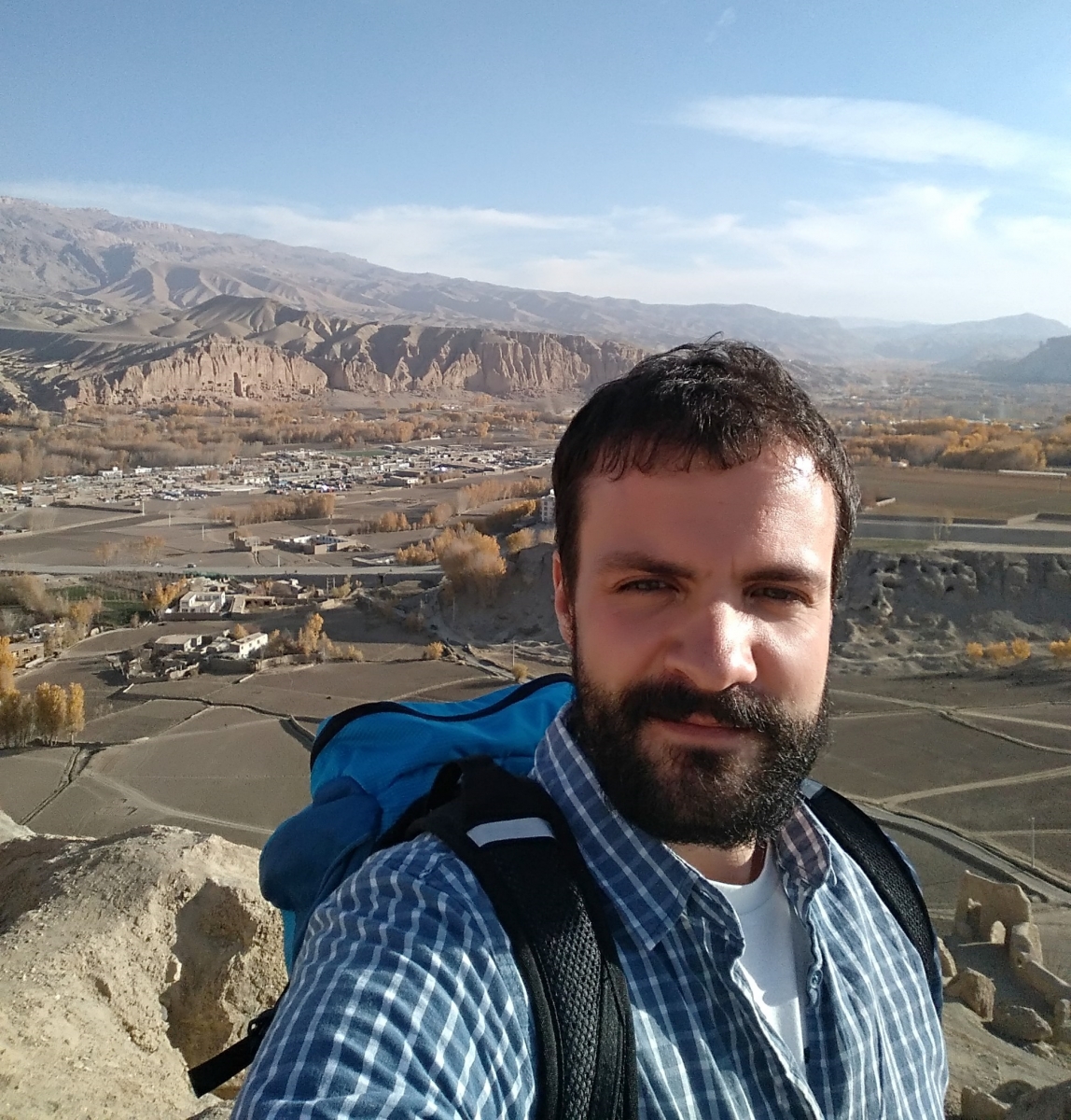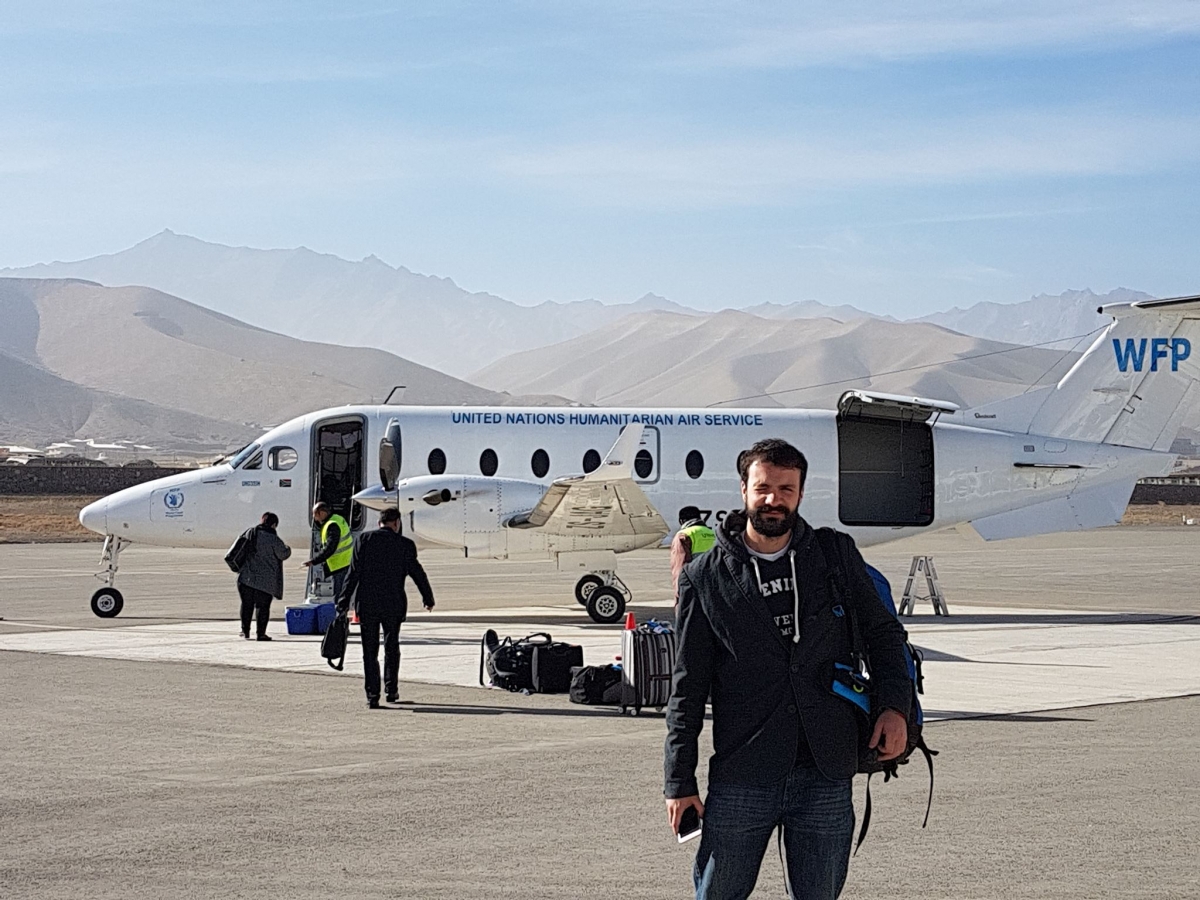-
About
- Our Work
- Get Involved
- Stay Updated
From Afghanistan to an European Space Agency startup
At YPARD we value and celebrate diverse opinions, ideas, and perspectives, we also believe in the innovative ability of young people in agriculture and their capacity to shape sustainable food systems.
Here is an inspiring and phenomenal story of a young agricultural professional, Luká T?ma. His story is both unusual and remarkable and he has been able to make a success out of the mixture of both information technology and agriculture.
Here is Lukás story!
 Hi! Luká here. I am an agricultural analyst in Big Terra, a startup which graduated from The European Space Agency (ESA) Business Incubation Centre (BIC) Prague. I guess you could say that I am sort of a mixture between an IT guy, analyst and expert on crop production modelling. My workflow generally contains data wrangling (processing) with satellite imagery, playing around with NASA or Copernicus climate models and launching thousands of Crop growth simulations aiming at estimations of yield and optimization of crop production systems, mostly in developing countries. Of course, there are lots of other fancy keywords, which define my work Artificial Intelligence (AI), Development projects, Food Security or Climate resilience and vulnerability.
Hi! Luká here. I am an agricultural analyst in Big Terra, a startup which graduated from The European Space Agency (ESA) Business Incubation Centre (BIC) Prague. I guess you could say that I am sort of a mixture between an IT guy, analyst and expert on crop production modelling. My workflow generally contains data wrangling (processing) with satellite imagery, playing around with NASA or Copernicus climate models and launching thousands of Crop growth simulations aiming at estimations of yield and optimization of crop production systems, mostly in developing countries. Of course, there are lots of other fancy keywords, which define my work Artificial Intelligence (AI), Development projects, Food Security or Climate resilience and vulnerability.So how did I get here? Well, I will have to disappoint you! My family background has nothing in common with agriculture, coming from the medical field. My educational path is more relevant but has been quite convoluted. I always wanted to write a book and studying agriculture in developing countries seemed to me to be a great source of inspiration! You can no doubt imagine it travelling around the world, gaining experience with different cultures, languages and of course meeting interesting people and hearing their stories. And the actual agriculture? Haha! I thought Who cares I wanna be a famous writer! So, I started to study at the Czech University of Life Sciences Prague (CZU) with quite a different agenda in mind.
As these things happen, after a while, the actual agriculture itself started to fascinate me. Food security, poverty in rural areas, biodiversity loss and of course - Climate Change. I decided I needed to learn even more about these issues and so I travelled to Wageningen University in the Netherlands. Moreover, my burgeoning passion for satellite imagery became a natural entry point for Data science and analysis. Since then, I have continued to pursue my education in agriculture-related topics, to understand the issues of agriculture in developing countries and to help farmers in their struggle with climate change or poverty reduction. My studies led me to also participate in the BeFair movement at CZU, an organization bringing enlightenment about Fairtrade ideas between students. Another great experience, as I concentrated on my work in graphics and illustration, expressing Fairtrade ideas through infographics. With my work now, this ability to graphically express more complex data has come in very handy.
After graduation, I started my PhD. studies and voluntarily worked for the NGO Diakonie ?CE for a while, leading to interesting projects in Cambodia and Afghanistan, giving me great experience on projects focused on rural development and of course the travel that I craved. Another great experience was an internship at the International Institute for Applied Systems Analysis (IIASA) a top scientific institution in Austria . very fond memories of working with top system analysis scientists that have been a great inspiration for me. And it was at this time that I started to learn programming and all these things concerning advanced analytics. From this, it was only a small step to join an ESABIC agtech startup.
These days I am mostly working on development projects with Caritas Czech Republic, People in Need, UNDP or ESA in several developing countries. Our startup, however, cooperates with quite a varied stratum of
 companies and institutions to strengthen value chains in agriculture and promote sustainable development. Along with this, I am still partly engaged in scientific research at CZU, where I am trying to find a use for Synthetic Aperture Radar instruments in crop growth modelling, which would have a positive effect on crop yield forecasting and food security monitoring. These topics will very likely continue to be my priority areas of interest for the near future. Moreover, I would like to share my experience with data science with a younger generation of analysts to ease their progress and make them successful in their stories. I am currently already helping two young analysts our interns and it is pleasing to see how they are progressing in agriculture-related data science. I am convinced that advanced analytics will be of tremendous importance in the nearest future and young people should push themselves harder on this topic. For me, programming and scripting, which is firmly a part of data science these days, was a tough barrier at the beginning. Whilst I initially did not see any advantages or added value to my interests, programming slowly turned into a passion. It is difficult, but if you give it your best shot over and over again, you will see the results of your efforts!
companies and institutions to strengthen value chains in agriculture and promote sustainable development. Along with this, I am still partly engaged in scientific research at CZU, where I am trying to find a use for Synthetic Aperture Radar instruments in crop growth modelling, which would have a positive effect on crop yield forecasting and food security monitoring. These topics will very likely continue to be my priority areas of interest for the near future. Moreover, I would like to share my experience with data science with a younger generation of analysts to ease their progress and make them successful in their stories. I am currently already helping two young analysts our interns and it is pleasing to see how they are progressing in agriculture-related data science. I am convinced that advanced analytics will be of tremendous importance in the nearest future and young people should push themselves harder on this topic. For me, programming and scripting, which is firmly a part of data science these days, was a tough barrier at the beginning. Whilst I initially did not see any advantages or added value to my interests, programming slowly turned into a passion. It is difficult, but if you give it your best shot over and over again, you will see the results of your efforts!More and more, young people have many opportunities to learn data science and programming and it is becoming increasingly easier and accessible. I should also mention that working in an agricultural startup gives one a lot of other opportunities for personal development or networking (i.e. meeting new and interesting people).
So, thats my story so far! I hope that it doesnt sound boring for you, the young and passionate agricultural professionals! And guess what! Ive also finally started to write my novel in my free time! As the saying goes, alls well that ends well!
Picture credit: Luká T?ma
Comments
No comments made yet. Be the first to submit a commentBy accepting you will be accessing a service provided by a third-party external to https://archive.ypard.net/
Get in touch
Email: [email protected]
YPARD Global Coordination UnitHosted by AGRIDEA and the Czech University of Life Sciences Prague
Lausanne, Switzerland and Prague, Czech Republic - Our Work

